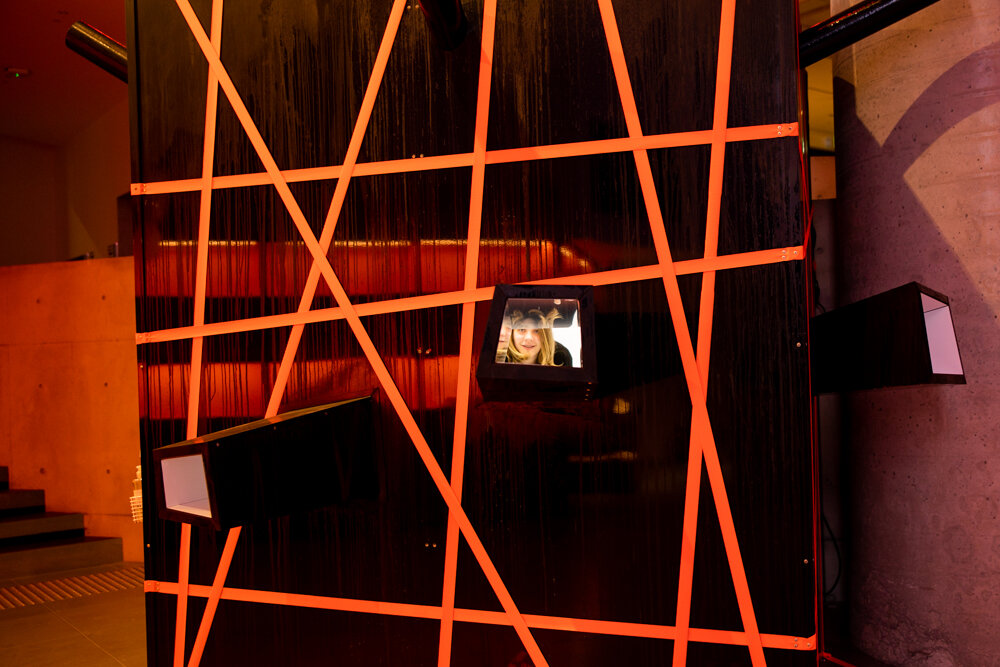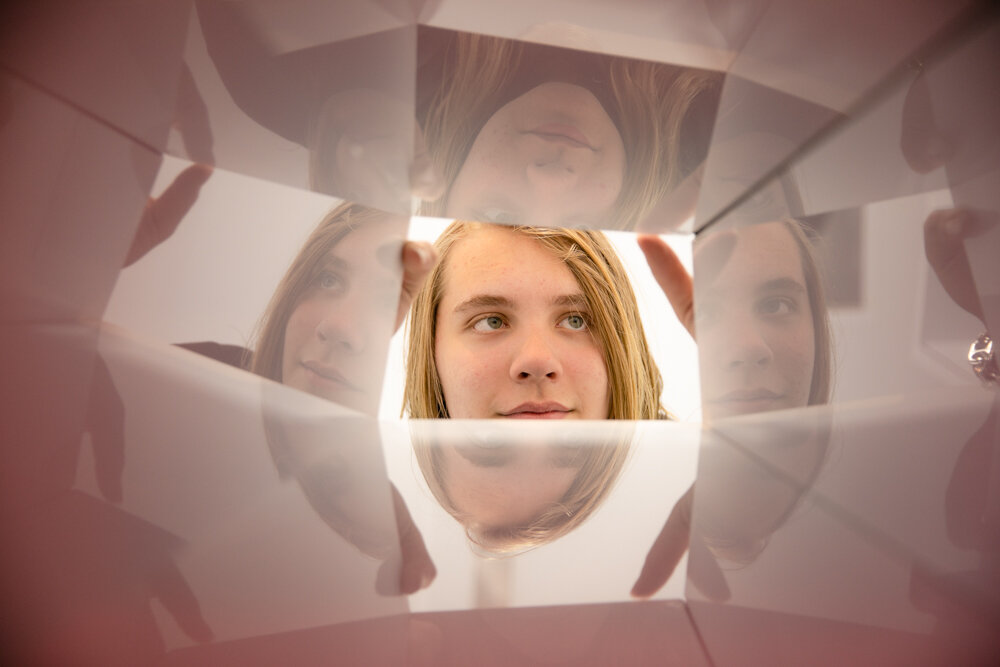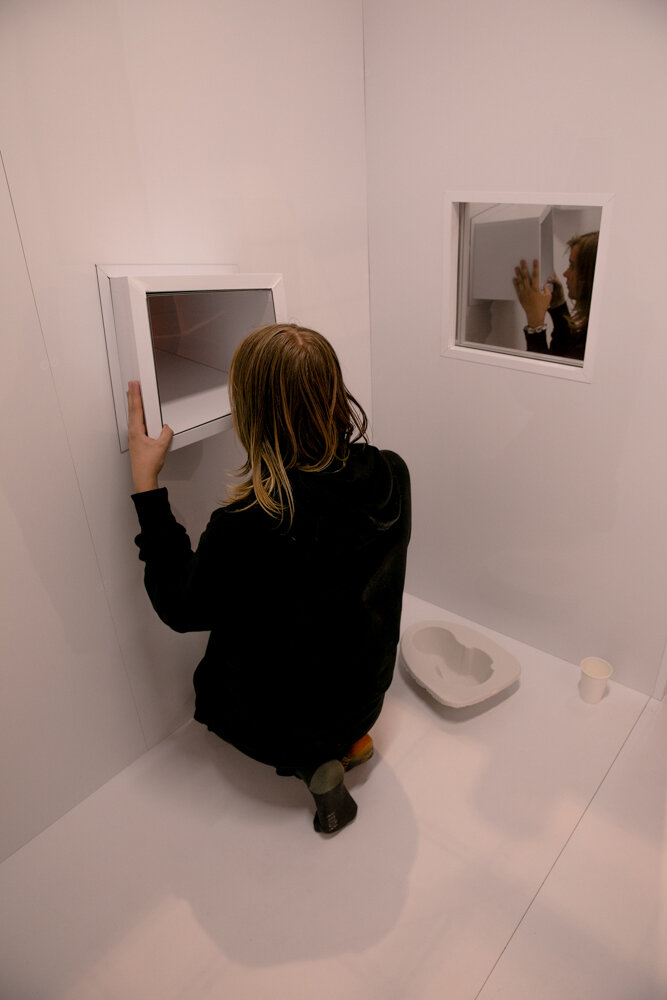Isolation Chamber
Rory Randall and Indigo Daya
How would this impact the worst day of your life?
Imagine being observed through view finders in a secluded room on the worst day of your life. Unfortunately, some people don’t have to. Being involuntarily detained in small spaces happens in Victoria at the highest rate in the country, especially to young people. The Royal Commission into Victoria’s Mental Health System recently said that these places, called seclusion rooms, should be eliminated within the next 10 years. Is this good enough?
When you visit the gallery peer through the portals. Write down your observations. When it’s your turn, step inside with nothing.
What is it like watching someone else? Do you think you could you tell what they were thinking and feeling?
Rory Randall is an ex-patient/mad thinker who is a part of the Consumer Academic Program at Melbourne University’s Centre for Mental Health Nursing. They were drawn into the research space after ten years of pretty mediocre experiences in the public & community mental health sector as a service user and worker. They are now interested in making spaces for non-individualising responses to distress and unusual experiences that expand an individual's sense of connection to what is meaningful to them whilst upholding their dignity and human rights.
TL;DR: Rory is a bit of a ratbag interested in epistemic disobedience that serves those on the margins.
Indigo Daya has been a lived experience leader in mental health services, education, policy and advocacy for sixteen years. She currently works as a survivor activist, author of The Blog That Shouldn’t Be Written, a consumer academic at the University of Melbourne, and a mental health consultant and educator. Labelled with depression, schizophrenia and borderline personality disorder, art was a place of survival and sense-making for Indigo during nine years of repeated psychiatric hospitalisations. Eventually art became a transformative tool with which she dug her way to freedom.
Indigo’s experiences of childhood trauma, madness and coercive psychiatry have shaped her passion for human rights, privileging survivor voices and alternative paths to healing. Indigo questions whether oppressive practices can ever enable genuine healing. She is interested in reframing ‘mental illness’ as a meaningful response to being human in a world filled with trauma, inequity, hate, violence and climate crisis.




